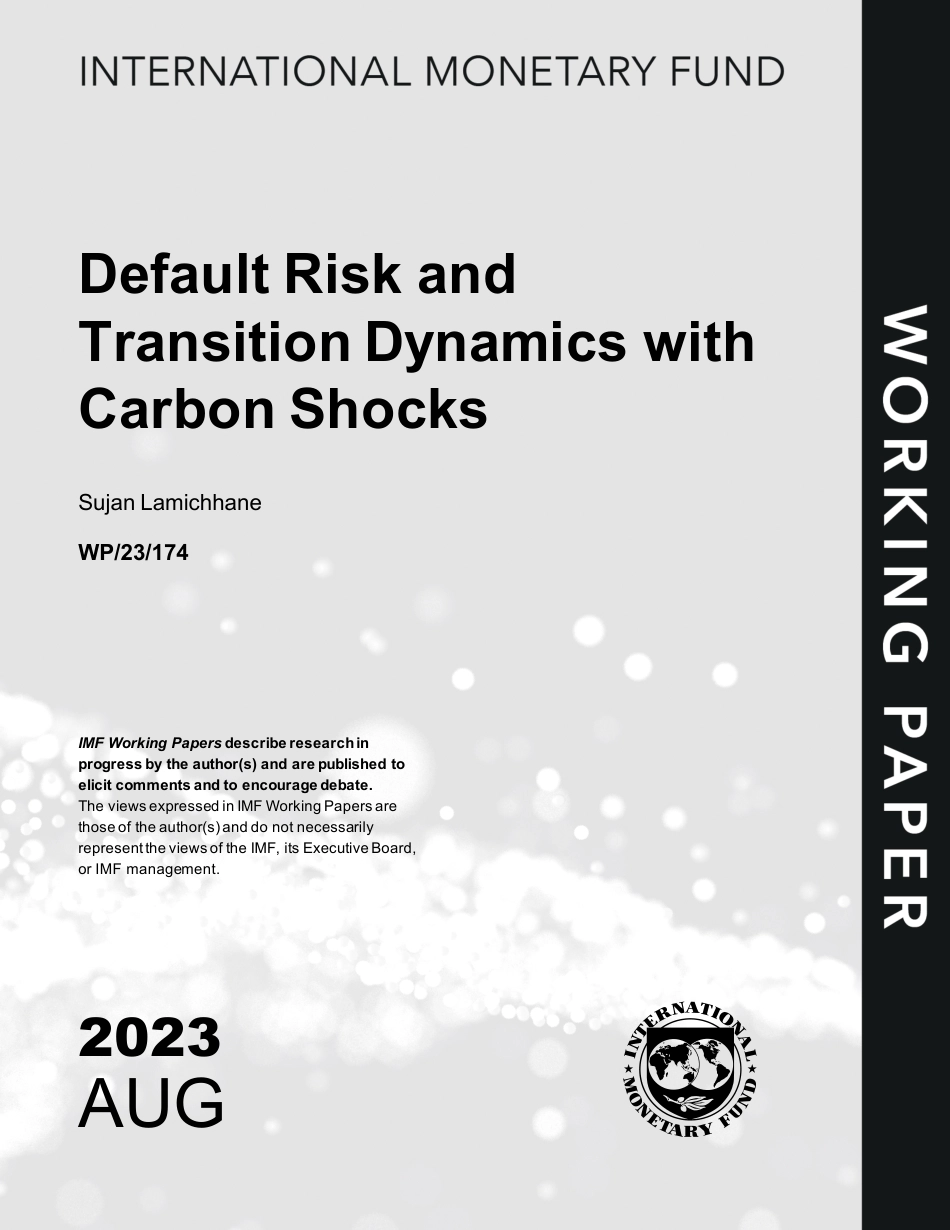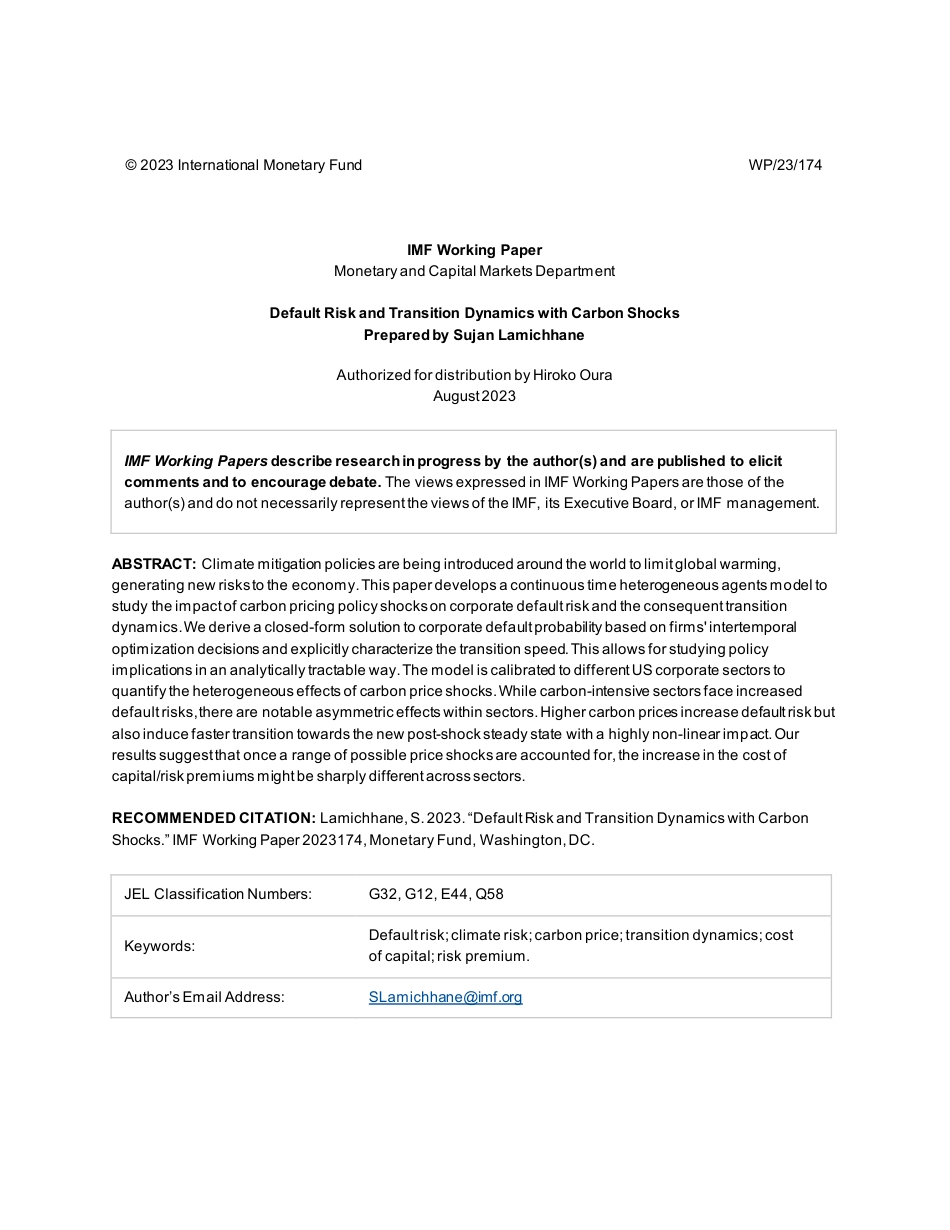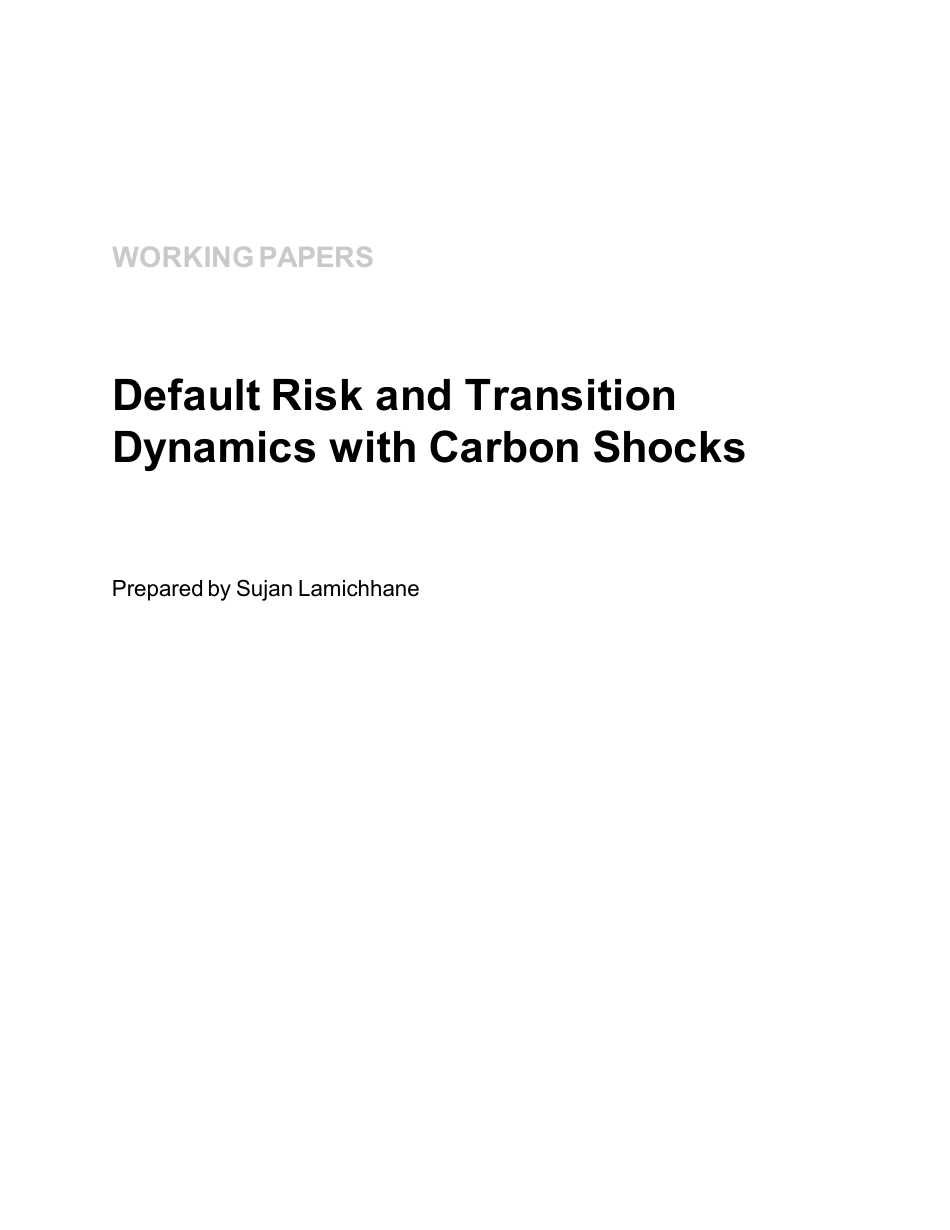Default Risk and Transition Dynamics with Carbon Shocks Sujan Lamichhane WP/23/174 IMF Working Papers describe research in progress by the author(s) and are published to elicit comments and to encourage debate. The views expressed in IMF Working Papers are those of the author(s) and do not necessarily represent the views of the IMF, its Executive Board, or IMF management. 2023 AUG© 2023 International Monetary Fund WP/23/174IMF Working Paper Monetary and Capital Markets Department Default Risk and Transition Dynamics with Carbon Shocks Prepared by Sujan Lamichhane Authorized for distribution by Hiroko OuraAugust 2023 IMF Working Papers describe research in progress by the author(s) and are published to elicit comments and to encourage debate. The views expressed in IMF Working Papers are those of the author(s) and do not necessarily represent the views of the IMF, its Executive Board, or IMF management. ABSTRACT: Climate mitigation policies are being introduced around the world to limit global warming, generating new risks to the economy. This paper develops a continuous time heterogeneous agents model to study the impact of carbon pricing policy shocks on corporate default risk and the consequent transition dynamics. We derive a closed-form solution to corporate default probability based on firms' intertemporal optimization decisions and explicitly characterize the transition speed. This allows for studying policy implications in an analytically tractable way. The model is calibrated to different US corporate sectors to quantify the heterogeneous effects of carbon price shocks. While carbon-intensive sectors face increased default risks, there are notable asymmetric effects within sectors. Higher carbon prices in...



